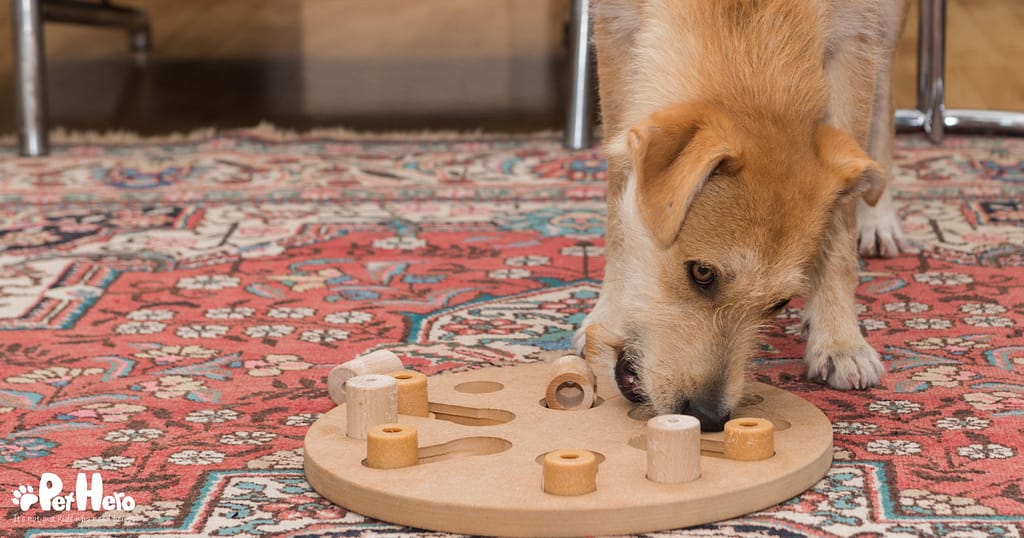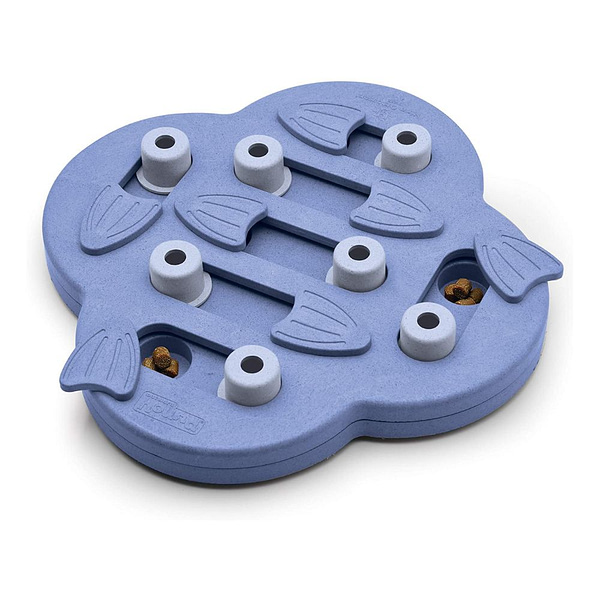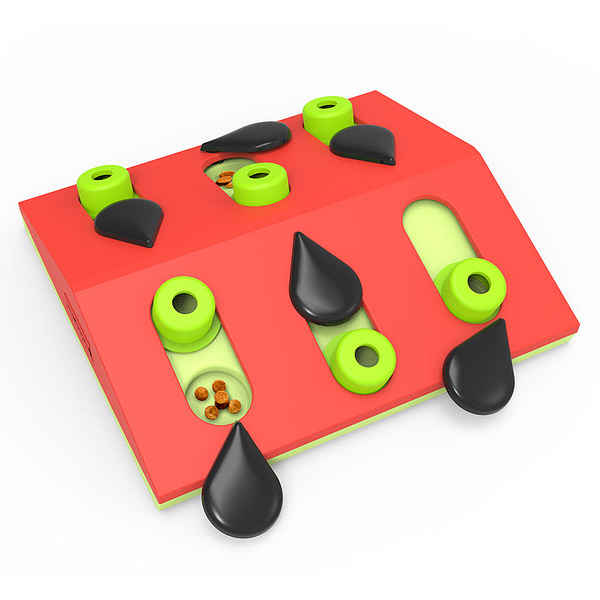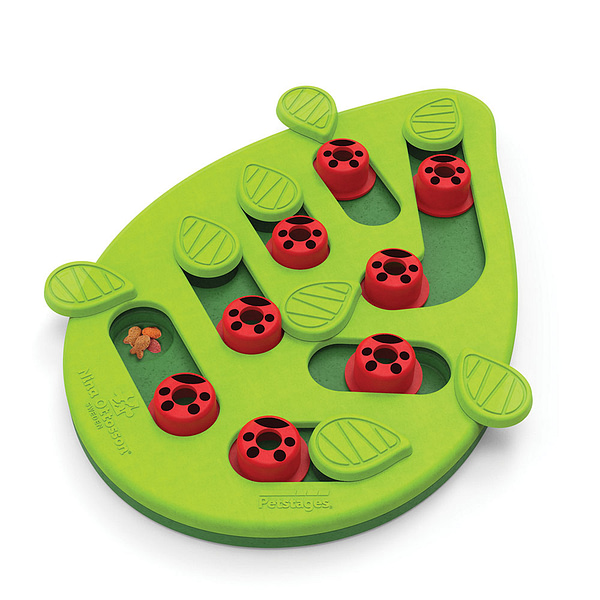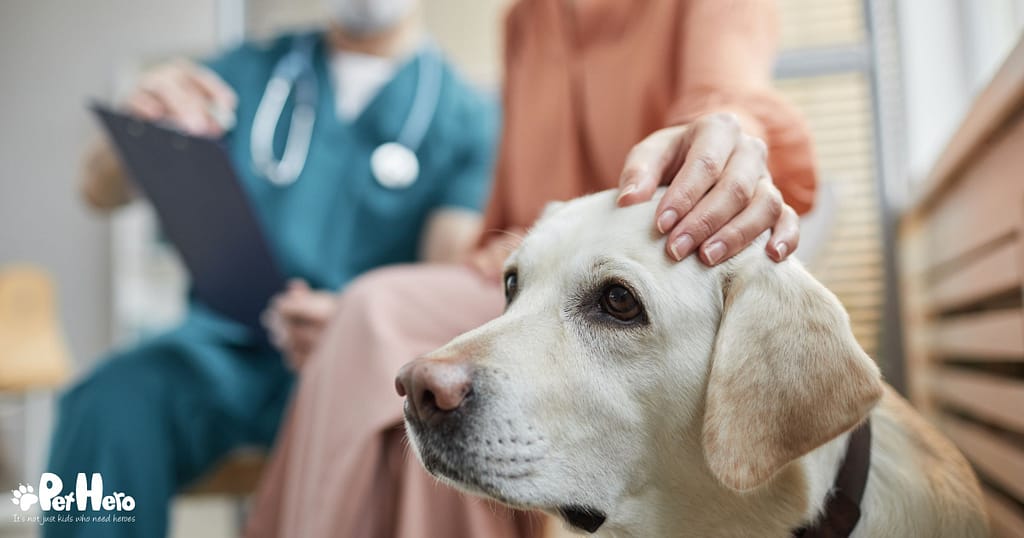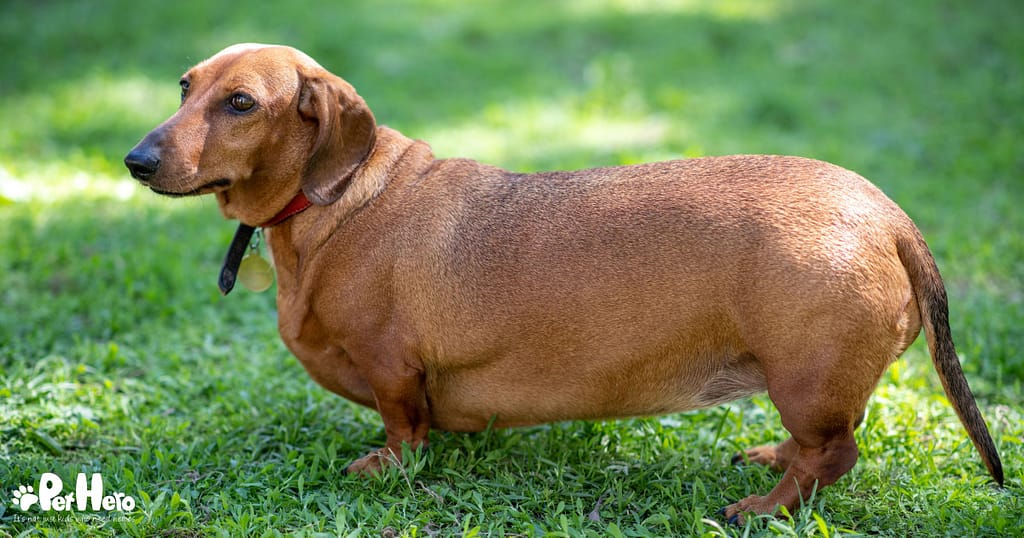Dogs’ lives are too short. Their only fault, really. – Agnes Sligh Turnbull
One of the inevitable truths about dogs is that they never live long enough – even the really old ones. As pet heroes, we relish in puppyhood antics, experience our best lives through the exciting stretch of canine adulthood, and as the senior years approach, a new season of pet care arrives.
You may notice changes in your senior dog: they slow down, their habits change, and – if you look closely – they become altered in ways that will ask more of you as a pet pawrent than you imagined. What happens when your dog who’s been housetrained for 15 years suddenly makes a mess in the house, or wakes up during the night and barks at nothing, or becomes super aggressive towards canine friends she’s socialised with for most of her life? It begs the question: do dogs get dementia? And how can we as pet parents help them maintain a good quality of life?
In this article, we explore the signs and symptoms of dog dementia, and how you can help your dog to navigate the world with a deteriorating brain.
What is doggy dementia?
Much like with senior humans, senior dogs’ brains deteriorate as they age. This brings on a range of symptoms that indicate a change in the dog’s perception, orientation, memory, social skills, sleep cycles and overall activity levels. Since these changes have to do with the brain and cognitive function, canine dementia is referred to as canine cognitive dysfunction (CCD) or cognitive dysfunction syndrome (CDS). The onset of changes is gradual and subtle, which is why many owners of ageing dogs either don’t spot the signs and/or don’t mention them to their veterinarian.
Dog owners may notice changes in behaviour and assume their dog is deaf, disobedient or is being lazy. However, their poor elderly pup may simply be lost in the confusion of disorientation, perception issues, memory loss, and mood changes. Owners might also think the noticeable changes are simply a part of the dog’s ageing process, without looking too specifically at what their elderly pooch may be experiencing. Sometimes it’s just ‘getting old’ and sometimes it’s canine dementia.
What are the signs of dog dementia?
Some of the following symptoms may point to other senior dog diseases like arthritis, deafness, vision trouble, kidney problems or hormonal imbalances. These need to be ruled out before canine dementia can be diagnosed. The vet may reach this diagnosis based on the following clusters of symptoms, which are organised in the DISHA acronym:
Disorientation
The dog appears to not know where they are, or they stare into space. They may appear confused, collide with familiar objects (such a furniture that’s always been in the same location), or repeatedly stand or scratch at the door, asking to go outside, when they’ve already been. They can also pace around the house, seemingly forgetting where they are; or get stuck in corners or behind furniture without knowing how to get out. As a consequence, they simply stand and stare at the wall.
Interaction
Dementia can also affect dogs’ sociability. If they’ve been friendly and socialised all their lives, dementia can make them aggressive, antisocial, and distance themselves from other pets and people. It can also do the opposite: for dogs who have not been particularly friendly, changes in the brain can make them affectionate, clingy and needing to be around others all the time.
Sleep patterns
Dogs with dementia can experience a flip in their sleep and awake cycles. They may sleep a lot more during the day, which can keep them up at night. Being awake during the night can then keep them sleepy during the day, which continues the cycle. This wakefulness at night can exacerbate feelings of confusion, so they sometimes also bark and whine during the course of the night.
House-training regression
While incontinence in older dogs is a common physical problem, especially those with arthritis, house-soiling is characteristic in the later stages of canine dementia for behavioural reasons. Unless there’s a physical problem with their bladder or kidneys that needs to be ruled out, dogs with dementia will ‘forget’ their house-training and simply not bother to (ask to) go outside to pee or poop. This may be a symptom on its own, or a symptom related to feeling disoriented or confused.
Activity changes
Activities the dog used to enjoy – such as playing or walking a favourite route – no longer excite them or elicit the same enthusiastic response. The dog may experience a lack of interest in once enjoyable events and surroundings. They may even experience increased levels of anxiety and, once comfortable being at home alone for an hour or two, they may now experience separation anxiety.
Not all dogs affected by dementia will have all of these symptoms to the same degree, but this list offers a thorough guideline on what to look for. If your dog has had a fixed routine and responds familiarly to certain commands, gestures, activities and people, then gradually (or even suddenly) responds and reacts uncharacteristically, it may be a cluster of symptoms related to canine dementia.
What causes dog dementia?
There is no way to pinpoint the exact cause of doggy dementia. All we know is that when the cause is age-related, it could be a result of a reduction in dopamine production and an increase in plaque and protein build-up in the brain – similar to what happens in human Alzheimer’s patients. Cognitive dysfunction syndrome in younger dogs can be caused by tumours on/in the brain or a traumatic injury to the head.
At what age do symptoms of dog dementia become apparent?
While doggy dementia is not breed-specific, you might hear or read that smaller breeds are more prone to developing dementia – and this at around age nine. It’s not that smaller breeds have a predisposition to dementia, but rather simply that they live longer than larger breeds. Dogs may start showing signs of dementia at any stage from the ages of nine to 12 years old.
How is dog dementia diagnosed?
Diagnosing dementia in dogs is not an exact science, especially since the symptoms of dementia can mimic those of other age-related illnesses. However, a visit to the veterinarian with a record of your dog’s symptoms and the timeline of their emergence, as well as any concerns you may have regarding your dog’s new or unexplained behaviour, will go a long way to figuring out what’s going on.
The vet may run tests to rule out other medical causes for the concerning symptoms. If the vet eliminates all other disorders and diseases, dementia will have been diagnosed by elimination.
Can dog dementia be cured?
Unfortunately, dementia is a progressive disease. While it’s progression may be slowed with diet, exercise and a consistent routine, it cannot be reversed or cured.
How to improve your dementia doggy’s quality of life
While there is no cure for canine dementia, there is a lot you can do to ensure your elderly pup has a good quality of life, in spite of how much the disease has altered the patterns and behaviour. Starting from the top:
Healthy senior dog food
Make sure your dog is on age-appropriate food for their correct life stage. A dog food that is packed with healthy proteins and carbohydrates as well as added antioxidants will keep your dog physically fit and mentally primed. The best senior dog food for arthritis will also be good for ageing dogs with cognitive dysfunction, as it contains the right blend of vitamins, minerals, antioxidants and anti-inflammatory supplements that are just as good for the brain as they are for the joints.
Consistent exercise routine
In spite of their ageing, senior dogs – especially those with orthopaedic and joint issues like arthritis – need daily exercise. Not only will daily exercise keep their joints ‘well-oiled’, but brief stints of playtime or a short walk for the purpose of sniffing and exploring can increase the amount of dopamine in your dog’s bloodstream, which can help to stave off dementia’s progression. Joint care for senior dogs can comprise supplements as well as high-quality food, regular exercise – even swimming – and enough rest on a comfortable dog bed with a memory foam mattress.
While out walking, let your dog go at their own pace so they do not become disoriented or overwhelmed. And don’t be too shy to ask other dog walkers to keep their dogs away from yours, especially if your pooch has begun to show signs of aggression towards others. It’s no one’s fault – this is just how it is.
Cognitive supplements for senior dogs
Laboratory studies as well as clinical trials have proved the effectiveness of certain supplements in slowing the progression and reducing the symptoms of cognitive decline. Make sure that any supplements for senior dogs you buy for your ageing dog contain the following:
- medium-chain triglycerides (MCTs) – for better fat metabolism for energy
- antioxidants – protects brain against oxidative stress
- DHA and EPA – anti-inflammatory omega-3 and -6 fatty acids
- L-carnitine – supports brain, heart and muscle function
- vitamin E – anti-oxidant; supports neurotransmitter function
- B vitamins – supports neural health
- arginine – supports good cognitive function; reduces blood pressure
Vitamins for senior dogs should be checked by the veterinarian first to ensure their vitamin, mineral and nutritional intake remain balanced, suppawtive and beneficial for your senior dog.
Play brain games with your dog
Equally impawtant to physical exercise is mental exercise. In the earlier stages of doggy dementia, it will help your dog’s brain tremendously if they can be challenged to find treats, perform new tricks and develop new neural connections in the brain. This can be done with puzzle toys, training exercises, and playing new games.
Be your senior dog’s pet hero
It takes a lot of patience and understanding when your once energetic, game-for-anything, sociable and brainy dog seems to deteriorate, slow down, and become confused. If they end up peeing or pooping in the house or becoming grumpy enough to turn away from you, or bark for no reason in the middle of the night and disrupt your sleep, they aren’t being a ‘bad dog’. An inconvenience to you may be the result of massive confusion, anxiety and disorientation for your poor dog. They need comfort, care and reassurance that everything is okay. The least a pet hero can do is to dig deep for compassion and understanding, and try to increase your dog’s quality of life.
While your dog is experiencing their final years in a disoriented state, try to keep things as ‘same’ as possible. Maintain a predictable routine. Don’t move the furniture around or do any redecorating. Spend time outdoors in the sunshine with your pup and do things that they enjoy. Lead them to their food and water bowls at the same time each day, and make sure their bedtime routine includes a quiet and calm period before they go to sleep. Never scold or punish them – they need as much love as possible in these twilight years.

